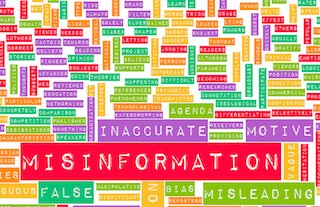How many times have you read a personal finance article in a major magazine or newspaper and tossed it on the table in disappointment. Or watched a show from a financial “superstar” such as Suzi Ormanand turned off the TV in disgust. Sadly, much of what purports to be financial advice in the media or on the Internet is inaccurate, biased, and self-serving. But occasionally one finds content that’s worthwhile, especially because it offers a contrarian perspective that sparks new ideas about an issue. The Motley Fool site does just that.
A case in point is an article it ran a few years ago called “The 10 Habits of a Good Financial Advisor.” Any consumer who read that article was forced to think hard about whom to hire as an advisor — and was able to ask that advisor challenging questions. Here are the 10 habits or advisor characteristics the author urged consumers to look for:
- Your advisor acts as a fiduciary at all times, whether by law or by principle.
- Your advisor charges a standard fee for services rendered (as opposed to commissions).
- Your advisor fully discloses, in writing, his experience, conflicts of interest, and compensation up-front.
- Your advisor considers the big picture of your financial situation before advising on products or recommending specific actions.
- Your advisor holds the Certified Financial Planner designation, a bachelor’s or master’s degree in financial planning, or another substantial certification.
- Your advisor is experienced.
- Your advisor follows a process for discerning your needs and offering recommendations.
- Your advisor has a clean regulatory record or a plausible explanation for prior citations.
- Your advisor is a member of a leading professional organization.
- Your advisor embraces continuing education and attends conferences.
Now, many of these points are just common sense that any advisor could wholeheartedly support, especially things like being experienced and having no black marks on your regulatory record. But others betray a bias toward a certain kind of advisor — for example, toward a fiduciary-standard RIA, a fee-only NAPFA member, a transparency-driven advisor, an investment-analyst type advisor — as opposed to a commissioned salesperson such as a life insurance agent or securities broker.
Advisors in those latter camps might rightly respond they are not legally required to be a fiduciary (at least not yet anyway). Or they might argue there’s nothing inherently wrong with accepting commissions as long as they adhere to regulations, especially those relating to product suitability. And they might object to being expected to disclose their commissions and conflicts up front, something required of investment advisors, but again, not of securities reps and insurance agents.
But here’s the problem. When consumers read such an article, they believe what they read and actually use the points when searching for an advisor. They have no clue about the nuances of being life licensed vs. being an investment advisor vs. being a securities broker. So when a life agent says he’s not a fiduciary in a legal sense, the consumer will immediately become suspicious. Even though the author suggests that being a fiduciary in principle only is acceptable, that will probably come across as suspect.
So apparently the author created a consumer checklist with lots of great advice, but also with a strong underlying bias. Problem is, he positions his advice as fact, and consumers will likely accept it as such, putting commissioned advisors on the defensive. So what should agents and brokers do? Here are a few tips that might help.
• Don’t be too quick to disregard personal finance experts who tell you what you don’t want to hear. You may have discounted their content as being biased, but your prospects won’t have. You need to be familiar with what prospects are reading and then respond to the implicit challenges the content raises. In effect, you need to elevate your game to meet the challenge of today’s media, however biased it might be. And even biased content might contain elements of truth. For example, after reading article after article touting the importance of being a fiduciary, you might finally see the merits of the argument and get licensed as an investment advisor representative held to the fiduciary standard.
• Explain to prospects that legal requirements are important, but so are ethical values. For example, a licensed life insurance agent, though not held to a fiduciary standard, can operate with a strong commitment to ethical sales practices. It’s not the license held that makes a good advisor; it’s the commitment to integrity, along with experience and wisdom, that makes a great advisor.
• Point out that many authors and so-called experts have their own axes to grind. For example, experts who agitate against annuities almost always stand to gain from the sale of annuity substitutes.
• When a consumer points to a biased article, react calmly, not dismissively. If you come off overly aggressive or emotional, you will automatically validate the author’s position and neutralize your own.
• Don’t write off all personal finance journalism and stop reading or listening to what appears in the leading magazines and programs. The only way you can rebut what’s out there is to know what’s out there.
• Finally, treat consumers quoting biased media content as you would a sales objection. Understanding where they’re coming from, preparing an answer in advance, practicing your answer, and delivering it confidently and with no apologies is the best way to meet the challenge of biased journalism journalism.
Because when all is said and done, people hire flesh-and-blood advisors who impress them with their experience and integrity, not famous advisors, experts, or authors who provide great, but sometimes slanted, advice.
Harry J. Lew is Chief Content Officer at the National Ethics Association. For more information on affordable errors and omissions insurance for low-risk financial advisors, visit E&OforLess.com. For information on ethical sales practices, please visit the National Ethics Association’s Ethics Center.













